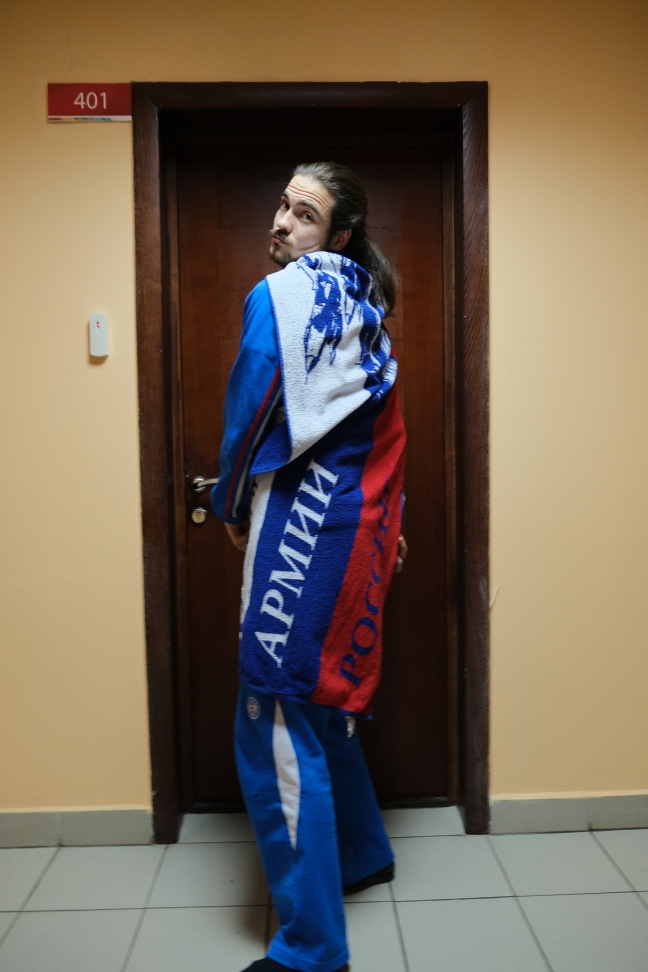I’ve got this request from a fellow student and a dear friend of mine, whether I’m going to write about friendship and my relationship with some people that I got to know in Russia. And I thought that, yeah sure! Why not tell a few stories.
What exactly did she ask? Hold on, gotta check it quickly… aha… yeah! She wanted to write about “us”. I was also surprised about this way of putting it. Indeed, she wanted to do it herself and I gently wished her good luck, telling her to deliver “качество” (Russian for quality). Apparently, I must have misunderstood her, for she corrected herself, requesting me to do it. “So, like, about our friendly relationship, the Erasmus kids or Kazan?”, I wondered. Then she suggested me to do a combo of all three things, believing I would come up with something suitable for her request (somebody has to believe in me at least), and that it would be amazing if I could add some nicknames to polish the story a little. So be it! Here’s one to friendship.
Going through the articles that I published on Russia so far I distinguished a relatively persistent negative trait that connects my impressions on different topics. Of course, it would be unfair to treat everything as if it had been awful or unpleasant. Though there were times where I had wished to be far away, longing for a common sense of rationality or a simple vegetarian restaurant, the opposite was also sometimes the case. It was the constant energy and support of a handful of people that kept me going through this experience. I feel like I owe them a lot. For it was their complete determination to abstain from any surrender of their personality that made them so valuable an asset to the group dynamic of our class and to my mental well-being. All of us faced the same problems – some were, of course, more prepared for them then others – giving that their language skills were more advanced, be it that they could cope with the general food quality easier than me -, my friends remained true to their principles and personal ideologies. Now that I’m considering who’s the most deserving to have a part in my story, I’m experiencing difficulties deciding. All of my friends from there had their own personal characteristic traits that made them stand apart from the crowd. On top of that, I wish not to anger anyone by not mentioning them. I will, however, restrict myself to the most close friends of mine.
First of all, I would like to present KyöstiOfficial to you. It’s basically the only one who actually truly had his nickname during the project, stemming from his Instaprofile. KyöstiOfficial has the special ability that he does precisely and only exactly what he wants to do. Never would he forcefully make himself change his mind. Nor would be pretend to like something that he was, in fact, against. As he appeared to be a strong-minded personality who would never betray his own intentions or lie to anyone, we always sought to introduce him to our casual hangouts. What’s more is that he was constantly high on snooze, pushing small baggies of tobacco in between his upper lip and his gum (which added something to his mysterious and unique nature). He most secretly attend the Russian classes: He would be sitting in the back rows, not steering a muscle during discussions rounds in the vain hope of not being asked to add to our thin round. He was certainly not invisible, and indeed he was greatly appreciated by all the teachers, despite his intermediate Russian. It was possible that for the exact reason that they all loved him (and so do all of his friends) that they always wanted him to speak. Life can be really troublesome sometimes… Жизнь не сахар!
With him I rode all the way to the Russian steppe in search of some peaceful place, that probably reminded us of our homes, where the mind isn’t disturbed by the constant chatter or the constant harmful car emissions. The path there had us come up with creativity to figure out how best to react to changes in planning. In the end it seemed like a never-ending recalculations, with mathematical formulas in disarray. Blablacar switched into hitchhiking, bus, train, hitchhiking, almost taxi and more hitchhiking. His patience was truly unbeatable during this trip. We may not have bought the Sterlitamak magnets, we managed to take a pic with dear Vladimir Iilich in Salavat.

Except from our irregular trips somewhere or the camping in woods, we didn’t leave Kazan together as one complete group very often. On one of those occasions we went to take a bath in march. The vapour was escaping the steamy tent in large white clouds as we protruded the place to take refreshing refuge in the clear water of the Blue Lake, the Глубакое озеро. Having felt the strange aqua-thermal sensation, we longed for the smiling group of students who all studied Russian and their engulfing warmth. Many of us had gone through much during that time – the adaptation to the absurdity that was on Russian level was comforting and challenging, for most were happy to return home after their stay (at least for a still unknown time) – so that the support and guaranteed respect for each other was always something we could count on. Let loose in a somewhat bizarre world, we created bonds between each other that would overcome nationalities, or rather, thrive thanks to the differences in our upbringing and culture. Some lived up to the expectations of national stereotypes (e.g. a predilection for drinks in Finish people, the spirited, Italian hand movements while talking,…) while others shook the foundations of the classical way of displaying the life of their specific home country. It was especially the Germans (or those living there) who did their best at shattering any German stereotype: punctuality and efficiency. We would eventually reach a certain point, where even the most obstinate teacher would stop questioning our late arrivals in class.
Clearly one extraordinarily remarkable character is the musician and friend of fine arts and he’s no other than Mr. Schubert. First name: Ludwig. You wouldn’t believe what value a brilliant name such as his possesses; it can literally grant you access to place that would have been out of your reach. In many occasions it fully astonished new acquaintances. They would be merry. As a fine addition Ludwig sometimes added that he’s playing the piano, which instantly made him become something of a musical icon. Even the officials usually plaintive world was shattered for a millisecond, so that they gave him the key to the piano room where he could play all by himself for hours. I wish for him that he eventually gets him piano at home in Berlin. It would mean an infinite evenings of jolly evenings!
He was one of my first acquaintances when I moved to Berlin and has ever since welcomed my into his flat. There we would discuss our time in Berlin and the near future – all that with a glass of wine at hand. The idea to visit Russia and to experience all of its absurdities would eventually strike us as a promising plan. Little did we know at that time that we would be dropped in an intensive two weeks of dealing with bureaucracy and preparing for the interview with an official from a Russian university, which, despite the coffee and black tea in our bloodstreams, went fairly acceptable (I might have called the city St.Petersburg by its old name Leningrad).
As devoted readers may have already read, we did move to the Russian city of Kazan right on the Volga Хуйолга river for reason of academic studies. We would share a shared flat with a brainless English guy – dear old Mikey-boy kept us wishing that he might take a looong and frosty stroll through the endless forests of Northern Siberia – and discover all of Russia’s countless absurdities and contrasts. Thanks to his photographic interest I could rest my freezing hands in the warm entrails of my jacket without bothering too much about taking photos. If I spotted something, it was easier for him to capture the moment, rather than risking frostbite myself. Whenever we returned to our shared room, we would warm ourselves with some illegal alcohol that was always comfortably stacked away in the dark corners of our wardrobes and prepare a simply dish, such as French onion soup. A nice onion soup requires long hours of slow cooking and some more of that illegal substance called wine; it’s smell filled the hallways, equally distributing the odour of white wine throughout the building.
Much more can be said about our tricky situation in Kazan and the way we mutually assisted each other in dealing with bureaucracy, strict authorities, stubborn teachers and our inner temptation to let everything be, but I’d rather end this part by referring to an older article (i.e. Breathing in the air of Glasnost and other stories from within the Ural mountain range) and my greatest gratitude towards him for following through with our silly plan to its end.

One plan that didn’t fully fail, despite ever changing means of transportation that drastically change throughout our preparation time at home and during our stay in Russia, including as many possibilities as six: buying an authentic LADA with which we could have traversed all of Russia in a speed similar to the development of public opinion in Soviet Russia, renting a car, taking a train, hitchhiking, taking marshrutka or even asking for military support (considering Ludwig’s uncle’s proximity to Russian military, this appeared somewhat within the limits of the possible). Even our initial idea to move to Yekaterinburg instead of Kazan was quickly thrown overboard. Little of what we planned actually did come into effect.
We are in a crass contrast to the Italian students. All of them appeared to know what their future will look like. That is, apart from on an emotional basis, where they surprised us and, mostly likely, themselves with their sudden changes in partners. The absurdities didn’t seem to bother them as much since they hadn’t really put too much consideration into this matter.
Both Russian mindset and its language seem to be about equally complicated to understand and mastering both at the same time requires a lot of attention and work. There’s different ways of how best to deal with this problem. Combining them worked best for me, as I got to e.g. listen to songs (mostly Viktor Coi) and then analyse the lyrics so in order to memorise new words by hearing the words repeatedly in your head while rambling through Kazan. Other ways could include literature or playing a theater role in a Russian piece. There were those students who approached the language learning process from a practical direction. However, apparently a language can be treated solely as a means of communication, therefore, dealing with the cultural or political aspect can be disregarded as useless. Some of our fellow foreign students had, prior to Russia, learnt a very decent level of Russian that was almost flawless when it came to grammatical aspects, however, they had troubles naming a single Russian band upon meeting us. They were immune to all of the nonsense that was forced on us, because they hardly questioned the system in any critical way which gave them an incredible advantage. It was especially the Italian students, who were surprised to know that the system Putin has (re-)introduced some very silly laws (though some locals were also not informed about it as well).

Maybe it was the obvious oblivion for most features of Russian musical culture and questionable political delusions that made a handful of people disciplined to a degree that they could communicate almost entirely in the Russian language outside of (sometimes) frustrating courses while, simultaneously, prepare for IELTS test and translate all of Homer’s Odyssey from English into Italian. Time to introduce to the blog a new Italian girl: Beatrice, the girl that goes by a different name, but who inspired me to write this very entry that you are reading at this moment.
Beatrice is extremely devoted to the cause and took up the challenge of living in Russia and learning the language with ease – or at least so it appeared. Blessed almost exclusively with positive character traits she could have served as an inspiration to us when it comes to punctuality, hard-working, language acquisition and reliability concerning homework. And, indeed, she was one of the few foreign friends that I’ve acquired during my stay in Kazan who would insist on speaking Russian. Though my brains came steaming out of my ears after the initial first weeks of lessons (a great adaptation to the language occurred with great force – the cold of the Russian winter helped cool our overheated heads), discussions during our walk through dense snowfall back to the student’s dorm tickled out a little bit of energy.
What shocked me therefore, for it is in crass contrast with my perspective, that she was practically entirely unaware of modern Russian culture, music and even politics. Why burden oneself with learning a language as complicated as Russian if of is all but dimly aware of what to do with it? Possibly out of contemplation that, at the end of one’s studies, there WILL be job opportunities (e.g. as translator/interpreter)? Although I am grateful of her efforts to make me be understood by Russian natives, I am not sure if I managed to raise her interest in Russian culture.
Russia, the land of contrasts, where everything should be expected, especially as it to megalomaniac ideas or ideals that grazed off of both sides of the extremes. This probably stems from the harsh climate that provides the coldest of winters and the hottest summers alike – Russia, the great sauna. And in this conditions people had come up with gigantic living quarters that stretch as far as the eye can see, though, одновременно, containing as many constitutional elements as any right-winged populist speech – that is little to nothing. In between enormous hubs of technological progress that are scattered all over the stupendous surface of Russia lay 1000s of miles of backwardly nothingness.
The diversity of the Russian soul manifests itself in its inhabitants and in those who reside in it, even temporarily. On one hand we have the hard-working Italians, whose energy didn’t diminish all throughout the semester, while on the other hand we have Uka, the Inebriate Mongolian Viking.
Uka – epitome of laziness and sociability, mostly in combination with procrastination and alcohol abuse. Though always defending the grandeur of the Mongolian empire or whatever is left of it, his patriotism does not present a hindrance to interculturality, especially concerning exchange of musical knowledge. Therefore, Uka manifests itself mainly in two ways: a fostered sense of belonging to the Mongolian nation, enabling him to carry on lengthy discussions about this very country, laying out major historical aspects and political manoeuvres of the leading families to anyone (particularly to Chinese people), and the willingness to absorb every kind of musical recommendation, placing them in a cognitive spectrum – some genres feature qualities over other genres, with certain mixes amplifying in an ultimate greatness, namely Level 5. Level 5 mostly contain traces of folkloric songs, combined with elements of modern rock/metal. Some may say that this is Post Modern music. Here are some examples:
https://www.youtube.com/watch?v=vztRqe_CHC0
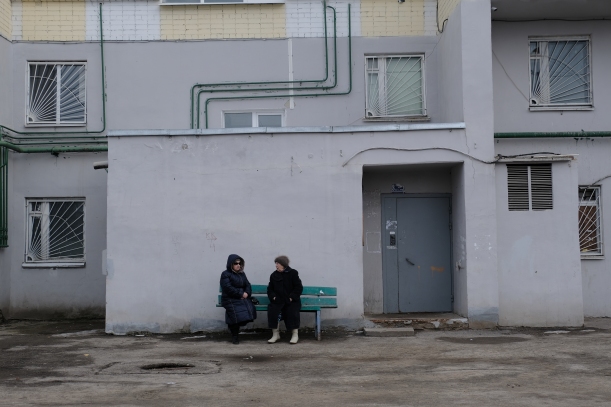
Half-sarcastic, though witty transition!
Despite the repressive nature of our student’s dorm and its arbitrary nature, we got into touch with some Russian fellows from out of this dimension. Credits go to Kyösti.Official for this one, as he introduced The Dudes to us. The dudes befriended each other already at a very young age and probably swore at that time that they should destabilise Kazan as much as possible by incessantly challenging Russian laws and codes of behaviour. This expression of civil disobedience, though not necessarily always wanted or anticipated by themselves, displayed itself in a profound liking of foreigners, whom they invited to home parties; those would often escalate into trespassing onto a construction side.
Are they considered to be a threat to the state just because they climb abandoned places?
Maybe. It’s Russia. But this, far from being the worst things that we could have done, was barely a drop in an ocean of stereotypes and dangers (not just to the state, though). Not only had Pasha, one of The Dudes, tuned his car to such a degree that the acceleration was bound to self-obliterate the vehicle (while cables were hanging out from the front part), he also had a lot a gadgets in his flat that could pose a threat. It’s one thing to have some radioactive isotopes stored on the balcony where everyone smokes, it’s another to have extremely reactive Potassium stored it as well – in due course he’d demonstrate this element, and throw it down his balcony into the snow beneath; a formidable explosion followed its impact. They were some of the most exceptional people though. A radio communication set in the living room, a few guitars plus amplifiers that would made the neighbours go on a late-night rampage to the restore order, a good load of beer and a loaded playlist of car tuning always ready on youtube added up to an outstanding party. Those were the moments when my stuttered and strangled Russian rendered me particularly speechless – a feeling that is mostly negligible while hitchhiking.
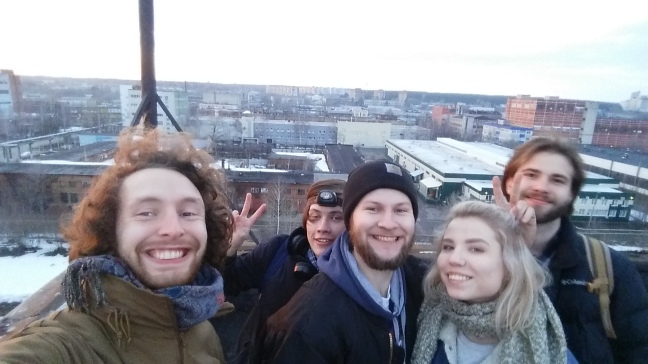
It’s difficult to asses how many more names, places and faces should be named, and, doing so, how many more names should be disfigured and regurgitated in a grotesque way. Despite the fact that all have individual traits 180° opposite to the ones even of like-minded people, some specific characteristics could only be tickled out, as the group dynamic came into play.
Ludwig and I have way to the combined Finish effort (Kyösti.Official and The TitAntti) at consuming beer before Русское кино in order to make the films a tad funnier. It was one of those precious masculine moments: 30 minutes of tranquility and sunshine, just about enough to soften the emotional downfall that followed the previous lessons. Beer shaped this lovely friendship.
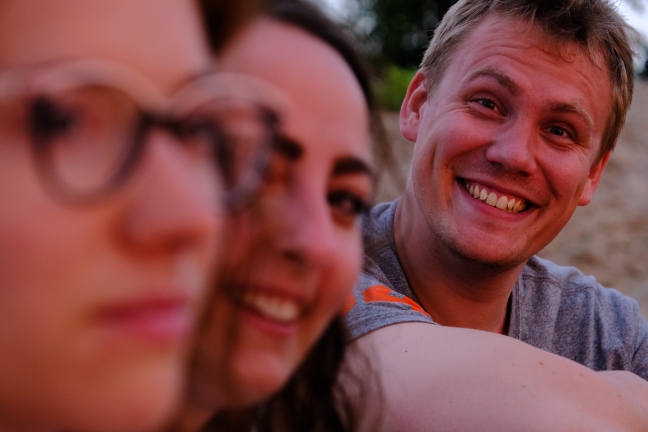
Coincidence got me thinking back to Luxembourg, thanks to the two classmates of mine who both originate more or less in the same region as my humble self. I’m delighted to realise that, whenever I return home, there will be friends waiting whom I have met in the far East and therefore share a unique fondness of heart.
ComeIn, the cheap Anti-Café on the student’s dorm’s campus, often instigated me to spend my sunday evening in a discussing way, protecting well-grounded arguments for a good cause, beneficent to all. It was the single-most international meeting point in Kazan. Any ethnicity or nation was represented, and a vivid exchange never failed to establish between those who attended. The conclusion of this somehow found expression in us playing frisbee during the happy evenings of Ramadan, while listening to Russian Hard Bass and screaming “Parkour!” like absolute madmen (and women).
This last picture will accurate exemplify our relations, taken beside the Глубакое озеро in the fading months of winter, just after a refreshing swim. One will never know what’s gonna await one at the end of it all. Much that was will be forgotten, fading away, becoming rumour and eventually legend. And our moments were legendary, in our particular idiom. And that’s life for you. Some moments are so precious, that they are worth waiting and remembering.
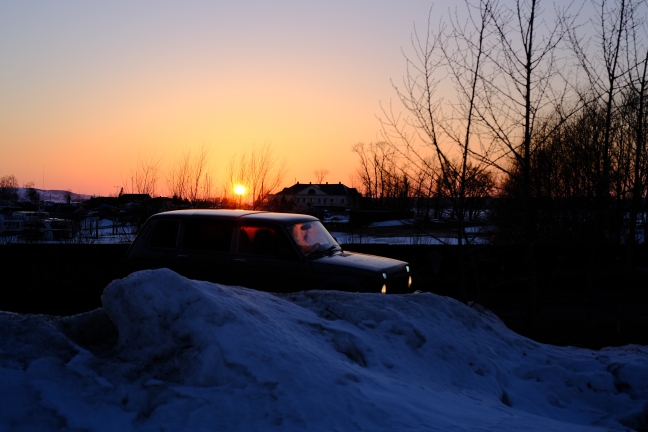
“А “жизнь” – только слово, есть лишь любовь и есть смерть…
Эй! А кто будет петь, если все будут спать?
Смерть стоит того, чтобы жить,
А любовь стоит того, чтобы ждать…“
– Viktor Coi, Легенда























